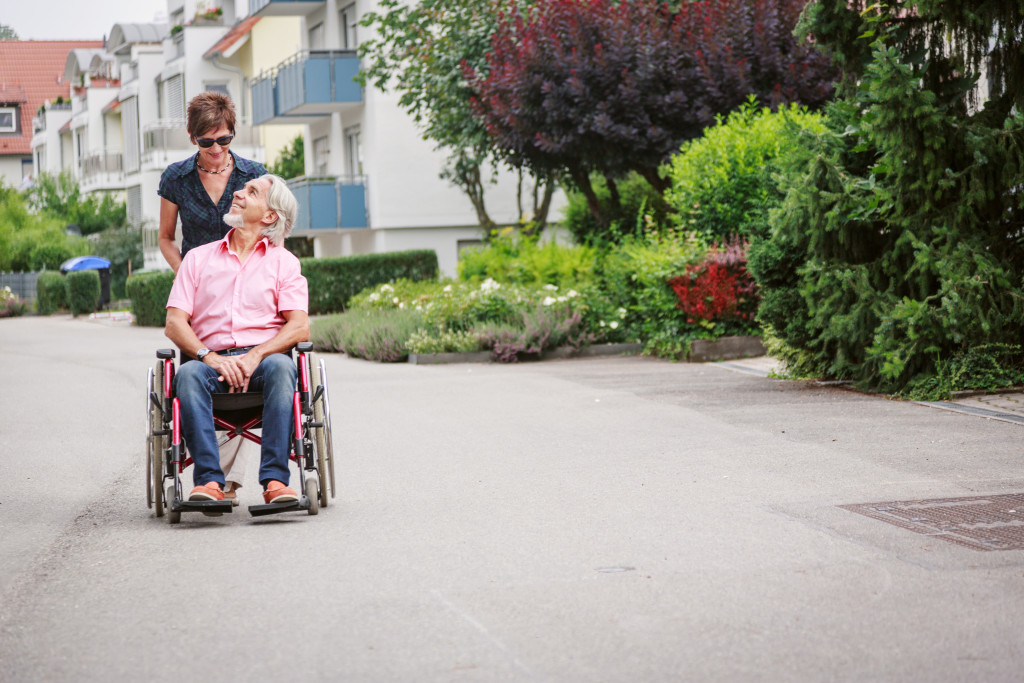As people age, they can often experience health problems that can be difficult to manage. In some cases, seniors may need help from family members to ensure that they take care of themselves properly and manage their health issues effectively. If you have a senior family member who is dealing with health problems, here are some tips for helping them out:
Talk to your senior family member about their health concerns.
The importance of talking to your senior family member about their health concerns cannot be overstated. By having an open dialogue, you can help ensure that they are taking the necessary steps to manage any health issues they may be experiencing. You can also identify any changes in their health that may require further evaluation or treatment. Open communication can help put your senior family member’s mind at ease. It also provides them with the support they need to maintain their health and wellbeing.
Some tips for talking to your senior family member about their health:
- Be respectful and considerate. Remember that your senior family member is an adult and should be treated.
- Listen more than you talk. This will show that you are interested in hearing about their experiences and concerns.
- Try to avoid giving unsolicited advice. Instead, focus on providing support and understanding.
- Encourage them to see a doctor if they have any concerns. Offer to make an appointment for them if necessary.
- Stay optimistic. This can be a difficult conversation, but it is important to maintain a positive attitude.
Help your senior family member keep track of their medications.
Helping seniors keep track of their medications is important because it can help them stay healthy. It’s easy for seniors to forget to take their medications or take the wrong dose if they’re not keeping track of them. Having a system in place for tracking medications can help avoid these problems.
There are a few different ways to help your senior family member keep track of their medications. You can create a chart or list of all the medicines they’re taking, including the dosage and when to take them. You can also set up a pillbox system, where each day’s medication is pre-packed into separate compartments.
Make sure your senior family member has a healthy diet and gets enough exercise.
Maintaining a healthy diet and getting enough exercise are important for senior family members dealing with health issues. Eating a balanced diet can help protect against diseases, while exercise can improve mobility and strength. It’s important to work with your senior family member to find activities that they enjoy and can stick with, whether going for walks together or signing up for a fitness class. Helping them maintain a healthy lifestyle can improve their overall health and quality of life.

Assist your senior family member with any medical appointments or treatments.
It is important to assist seniors with their medical appointments. They may need help understanding and following the doctor’s instructions. By helping out, you can ensure that your loved one receives the best possible care. Additionally, you can keep track of any prescribed medications or treatments.
You can do a few things to help if your senior family member is having difficulty managing their health issues. Be sure to schedule regular check-ups with their doctor. This will help to identify any potential problems early on. Ensure to keep track of their medications and help them to stay on top of their treatments. Encourage them to eat a healthy diet and stay active.
You should also bring them to a facility offering treatment for neurological disorders if they are showing signs of Alzheimer’s or Parkinson’s. The facility can conduct tests and create a treatment plan to help them deal with their health issue.
Be there for your senior family member emotionally and physically.
When it comes to being there for seniors, there are many benefits to reap. For one, seniors often feel appreciated when they receive support from their loved ones. This can go a long way in boosting their morale and making them feel loved. Additionally, simply spending time with a senior can help keep them mentally sharp. This is because socialization and conversation can help stimulate the mind and keep it active.
Of course, it’s not always easy to be there for a senior family member. Often, they live far away or have busy schedules that make it difficult to coordinate visits. However, even small gestures can go a long way. For example, sending a card or letter, calling on the phone, or sending a care package can let your senior know that you’re thinking of them and that you care.
Senior family members can face many health challenges as they age. Fortunately, there are several things you can do to help them manage these issues. One important thing is to keep track of their medications and appointments. You can also encourage them to eat a healthy diet and stay active. Most importantly, be there for them emotionally as well as physically. These gestures will go a long way in making them feel loved and supported.
